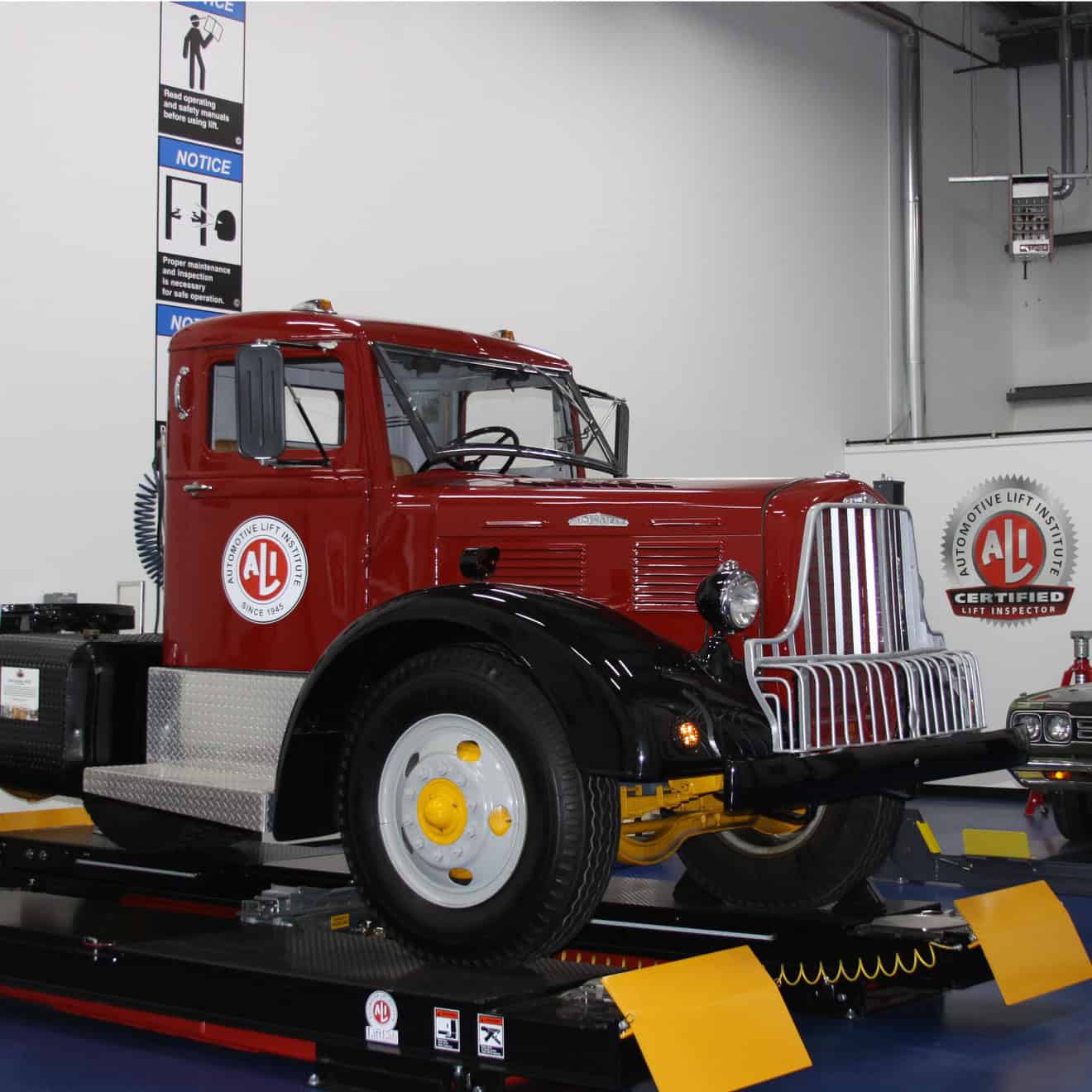The Automotive Lift Institute (ALI) celebrates 75 years as the lift industry’s safety watchdog in 2020.
ALI was established in 1945 by nine U.S. car lift manufacturers who came together to work for the industry’s common good. ALI’s original members were concerned about the limited availability of steel and other raw materials that remained under government allocation in the aftermath of World War II.
At the same time, high-grade steel – required for machined pistons and cylinders, as well as for forming superstructure components – was in short supply, so some manufacturers were reprocessing scrap steel of questionable quality to produce lift components. ALI members questioned the quality of these lifts and the safety of the lift operators working under them.
The focus on quality and safety that drove our founders to establish ALI 75 years ago remains the basis of our mission today: To promote the safe design, construction, installation, inspection, and use of automotive lifts. In keeping with ALI’s policies, ALI and the testing laboratories supporting the ALI Lift Certification Program do not supply, recommend, design, or manufacture lift products. As a commitment to remain impartial and free from any bias or conflict of interest, ALI does not allow commercial, financial, or other pressures to compromise impartiality.
In 1947, ALI developed the first Commercial Standard covering vehicle lifts published by the National Bureau of Standards. Today, ALI sponsors several national automotive lift safety standards and offers third-party certification programs for vehicle lifts and lift inspectors.
ALI is credentialed by ANSI (Accreditation ID# 0584) and recognized by the International Accreditation Forum as an Accredited Standards Developer and Product Certification Organization.
The ALI Lift Certification Program is the only accredited program in North America to test and validate that an automotive lift model meets the ANSI/ALI ALCTV certification and product safety listing requirements. Lifts that are tested and certified to meet all the applicable industry safety and performance requirements wear the ALI Gold Label — the gold standard since 1998.
Launched in 2012, the ALI Lift Inspector Certification Program is the only program in North America that independently tests and certifies automotive lift inspectors as qualified to inspect any vehicle lift in accordance with the ANSI/ALI ALOIM (current edition) standard for lift operation, inspection and maintenance. It’s easy to locate local Certified Lift Inspectors with our exclusive online directory.
ALI also develops and offers a range of lift safety materials through our online store, including the Lifting It Right online training course, Uniform Warning Labels, Safety Manual, Safety Tips Card, Safety Tips Poster and annual Lifting Points Guide. These items, along with the lift manufacturer’s specific instructions and the ANSI/ALI ALOIM standard (current edition), represent the documents required for lift operator training.
Today, ALI represents 20 lift manufacturer member companies and around 300 associate member lift inspection companies who share a common purpose in advancing vehicle lift safety. Through the years, changes in the marketplace have led the industry to identify automotive lifts with a variety of terms, including car lift, hoist, auto lift, truck lift and vehicle lift. ALI currently certifies seven types of lifts commonly used in vehicle service facilities: two-post lifts, multi-post runway lifts, parallelogram lifts, scissors lifts, in-ground lifts, mobile column lifts and low/mid-rise lifts.
ALI is headquartered in Cortland, New York. Our facilities include office and conference space, a modern classroom and the ALI LiftLab, a research and training facility that features 12 vehicle lifts provided by ALI member manufacturers. The installed lifts range from the smallest motorcycle lift to the most common two-post lift, all the way up to heavy-duty inground and mobile column lifts and include high-reach jack stands and wheels-free devices. It’s the only facility in North America that brings together such a wide range of operational lifts from various manufacturers and makes them available for hands-on industry training to candidate lift inspectors, product safety engineers and other industry professionals.

Quick Links
Contact Us